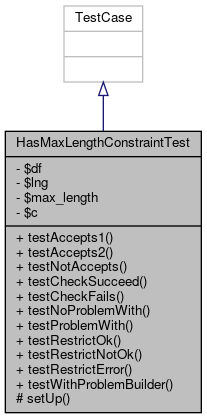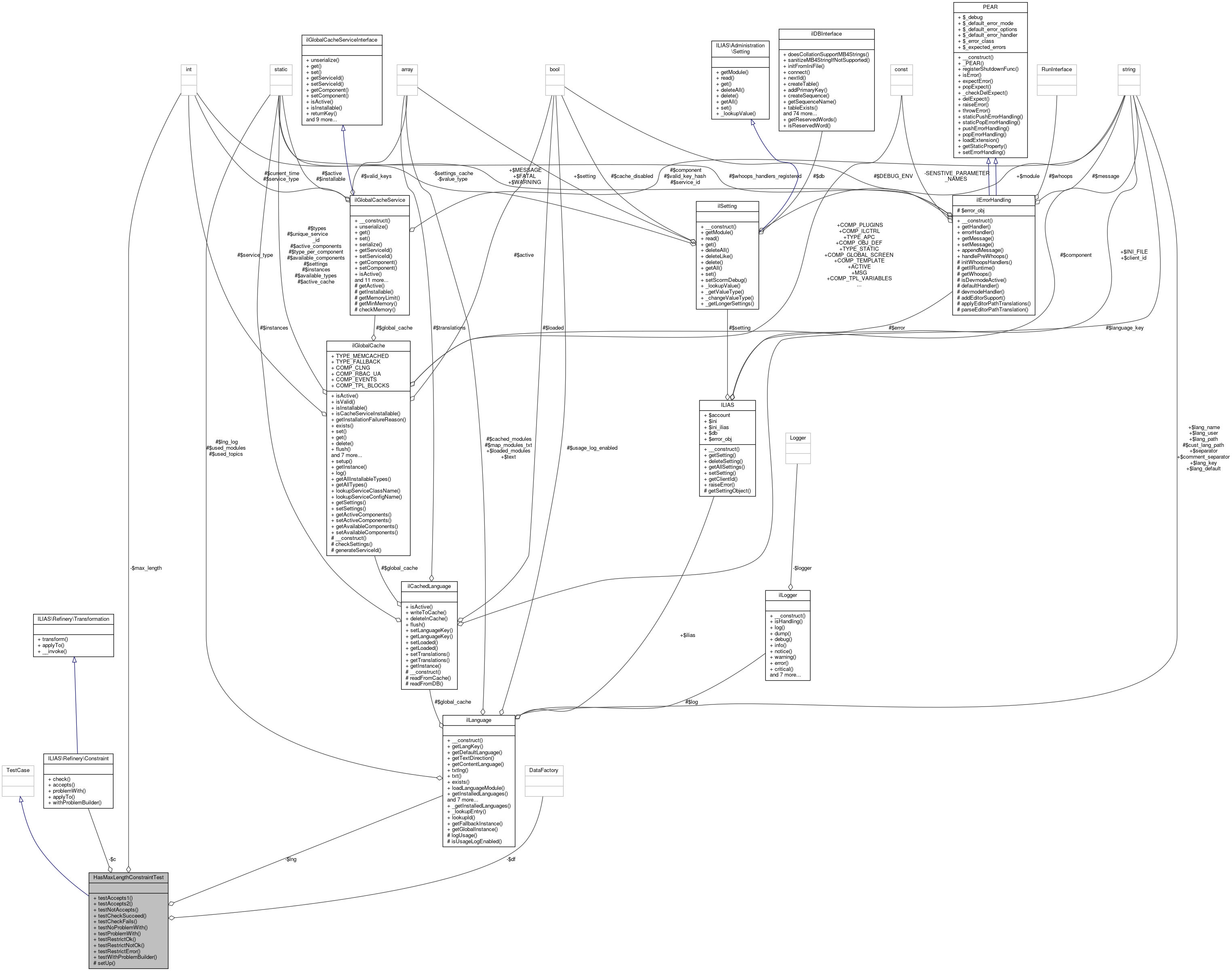◆ setUp()
| HasMaxLengthConstraintTest::setUp |
( |
| ) |
|
|
protected |
◆ testAccepts1()
| HasMaxLengthConstraintTest::testAccepts1 |
( |
| ) |
|
◆ testAccepts2()
| HasMaxLengthConstraintTest::testAccepts2 |
( |
| ) |
|
◆ testCheckFails()
| HasMaxLengthConstraintTest::testCheckFails |
( |
| ) |
|
Definition at line 68 of file HasMaxLengthConstraintTest.php.
68 : void
69 {
70 $this->expectException(\UnexpectedValueException::class);
71 $this->c->check("123");
72 }
◆ testCheckSucceed()
| HasMaxLengthConstraintTest::testCheckSucceed |
( |
| ) |
|
◆ testNoProblemWith()
| HasMaxLengthConstraintTest::testNoProblemWith |
( |
| ) |
|
◆ testNotAccepts()
| HasMaxLengthConstraintTest::testNotAccepts |
( |
| ) |
|
◆ testProblemWith()
| HasMaxLengthConstraintTest::testProblemWith |
( |
| ) |
|
Definition at line 79 of file HasMaxLengthConstraintTest.php.
79 : void
80 {
82 ->expects($this->once())
83 ->method("txt")
84 ->with("not_max_length")
85 ->willReturn("-%s-");
86
87 $this->assertEquals("-2-", $this->c->problemWith("123"));
88 }
References ILIAS\Repository\lng().
◆ testRestrictError()
| HasMaxLengthConstraintTest::testRestrictError |
( |
| ) |
|
◆ testRestrictNotOk()
| HasMaxLengthConstraintTest::testRestrictNotOk |
( |
| ) |
|
◆ testRestrictOk()
| HasMaxLengthConstraintTest::testRestrictOk |
( |
| ) |
|
◆ testWithProblemBuilder()
| HasMaxLengthConstraintTest::testWithProblemBuilder |
( |
| ) |
|
Definition at line 114 of file HasMaxLengthConstraintTest.php.
114 : void
115 {
116 $new_c = $this->c->withProblemBuilder(static function (): string {
117 return "This was a fault";
118 });
119 $this->assertEquals("This was a fault", $new_c->problemWith("123"));
120 }
◆ $c
◆ $df
| DataFactory HasMaxLengthConstraintTest::$df |
|
private |
◆ $lng
◆ $max_length
| int HasMaxLengthConstraintTest::$max_length |
|
private |
The documentation for this class was generated from the following file:
 Inheritance diagram for HasMaxLengthConstraintTest:
Inheritance diagram for HasMaxLengthConstraintTest: Collaboration diagram for HasMaxLengthConstraintTest:
Collaboration diagram for HasMaxLengthConstraintTest: Here is the call graph for this function:
Here is the call graph for this function: Here is the call graph for this function:
Here is the call graph for this function:



